Film review: Harry Potter and the Deathly Hallows
 When Warner Brothers announced that Harry Potter and the Deathly Hallows was going to be split into a two-part production, there was quite a buzz. Potterites (like myself) thought what a great idea it was- too long have we been suffering from bad book adaptations. Cynics decided this was just another marketing plot to pull in the mega bucks.
When Warner Brothers announced that Harry Potter and the Deathly Hallows was going to be split into a two-part production, there was quite a buzz. Potterites (like myself) thought what a great idea it was- too long have we been suffering from bad book adaptations. Cynics decided this was just another marketing plot to pull in the mega bucks.
It was probably a bit of both.
What can be said, however, is that the Deathly Hallows really benefits from this. While the book wasn’t the longest one in the series, it covered perhaps two novels worth of story, and much of it was critical to the overall picture. Splitting the book into two parts was a wise decision, and meant that nigh on nothing has to be scrapped; and it’s true- 95% of the book is in the film, and has been included effectively.
Much like the previous two episodes in the Harry Potter franchise, Deathly Hallows takes on a more dark and bleak outlook. The whole film is cast in shadow, and this is probably one of the scariest 12As in a long while. It is this unflinchingly bleak outlook that really sets the mood, and there is a genuine sense of peril that lacked from all the previous films, which were confined to the more internal, Hogwarts-centred conflicts. The sense of foreboding presents this film as less of a kids’ film and more of an adults’ fantasy-action, which is all too appropriate as the first generation of Potterites are now in their early twenties.
Acting has always been touchy throughout the last 6 films, particularly from the trio, but Deathly Hallows improves on this. Emma Watson as Hermione is, without a doubt, the best of the three, and she really nails her part. Daniel Radcliffe and Rupert Grint also seem to have improved, although this isn’t always obvious due to a few major dialogue problems that occur throughout the story. Ginny is, once again bland, and whether this is due to Bonnie Wright’s performance or the screenwriter is unclear.
Of course, not many films are perfect, and Deathly Hallows, while very good, isn’t either. For one, it’s very bitty, almost episodic. Most directors try and avoid making their films of an episodic nature -it slows the whole film down- but in this case, it’s inevitable due to the vast amount of story that needs covering and the limited screentime, which, of course, means that much of the explanation from the book is cut. Not only does this make Deathly Hallows very hard for someone to follow, but it also means that conclusions made by the trio aren’t always made by the audience, and as a result the film seems to jump around.
Another major problem (which I mentioned above) is the scripting problem. For most part, Steve Kloves has done a good job, lifting the skeleton of the dialogue from the book, I’m told, but in some cases, he seems to have mucked it up considerably, churning out some rather dead speech.
That being said, the positives far out weigh the negatives, and David Yates’ fantastic direction brings the book alive, as it should. Deathly Hallows is incredibly gothic- from bleak sets to the darkened tone of colour, this film is definitely more serious with greater sacrifices.
More than ever, Deathly Hallows is a film for the fans. Nearly all of the story from the book has been incoportated into the film in some way or another, and it’s incredibly rewarding to see a film resonate a book so truthfully. The only problem with this is the lack of explanation, which, if you’ve read the books isn’t a problem. If you haven’t, however, it’s a very different story, and the whole film will be, as someone put it, “random gibberish”. Some scenes (which were probably kept for the fans) have little or no explanation, and Deathly Hallows will seem like it’s jumping around without much structure or consistency.

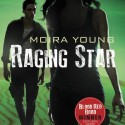
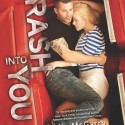
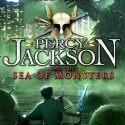
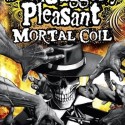
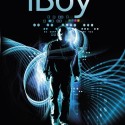
What did you think about Film review: Harry Potter and the Deathly Hallows?